
Tuesday November 2, 2021
By Mike Levine
Recordings obtained by ABC News capture a twisted world of hatred and violence.
'The Informant: Fear and Faith in the Heartland' | Nov 1 on Hulu
Homegrown extremist groups remain one of the greatest threats to the United States, join George Stephanopoulos for a never-before-seen look at the takedown of a terrorist attack/ABC News
This is part 1 of a three-part ABC News series looking at one chilling case of right-wing extremism in America’s heartland. Part 2 is available here and part 3 is available here.
Dan Day, a God-fearing family man , describes his shotgun, two rifles and three handguns as “a bare minimum” for anyone in Kansas.
He fiercely defends the Second Amendment and the right of Americans to form militias. Years ago, he developed a distaste for “everything the government is,” he said.
Then he became one of the FBI’s most unexpected informants, and derailed a domestic terrorism plot that authorities determined could have eclipsed the Oklahoma City bombing.
For more than a year, in the midst of 2016’s polarizing presidential campaign, Day braved a twisted world of hatred and violence, putting his life and his family on the line to infiltrate a radical militia group bent on killing Muslims in small-town Garden City, Kansas. Their attack was slated for the day after the election.
“It sounds so far-fetched, but it’s not,” said Day, 53. “And if it can happen in southwest Kansas, it can happen anywhere.”
In a series of exclusive interviews with ABC News' George Stephanopoulos, he and his family opened up for the first time about what they endured over many months when Day befriended three murderous men and secretly recorded hundreds of hours with them.
His story is featured in the new ABC News documentary “The Informant: Fear and Faith in the Heartland,” now available on Hulu . It also features exclusive interviews with the FBI agents and federal prosecutor who led the investigation.
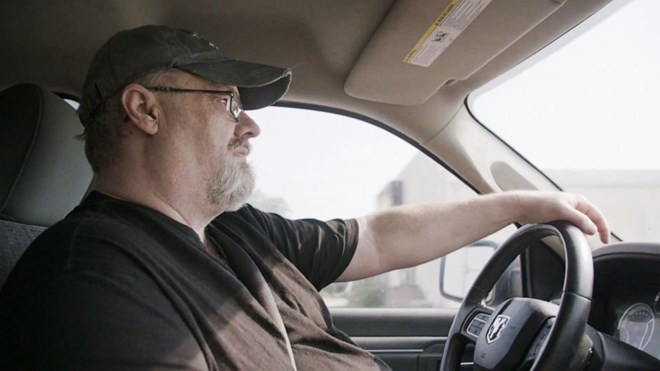
Former FBI informant Dan Day drives through Garden City, Kan., in August 2021. ABC News
“I don't know how [Day] did it,” said veteran national security prosecutor Tony Mattivi. “He knew … the parade of horribles that could happen with one slip, with one mistake, and he did it anyway.”
ABC News obtained a cache of recordings from Day’s case, capturing the men’s violent rhetoric and raw voices in real-time. The U.S. Justice Department has refused to release those recordings, which provide a chilling play-by-play from inside a domestic terrorism plot -- something rarely seen or heard by the public.
“I had to go along with them,” Day said of the hate-fueled men he followed. “The double life got real, and scary.”
‘Really? That guy?’
When FBI agent Amy Kuhn, based out of the FBI’s remote office in the small town of Garden City, Kansas, first suggested to her partner, Robin Smith, that they try to recruit Day as an informant in July 2015, Smith looked at her in bewilderment.
“Really? That guy?” Smith, who retired last year, recalled asking Kuhn.
Day, a former probation officer, had come onto the FBI’s radar through a bizarre chain of events, which included Day unwittingly attending a recruitment event for a local militia.

Agent Amy Kuhn and her former partner, Robin Smith, look through evidence from the "Crusaders" case, inside the FBI's office in Garden City, Kan., October 2020. ABC News
Smith said Day, raised as a self-described “country boy” in Garden City, seemed to “fit the mold” of a militia member, not a government informant.
But Kuhn felt differently and persuaded Day to become an informant. Unlike many others who help the FBI, Day didn’t have any charges hanging over his head. He agreed to do it simply because he cared about his community and his country, Kuhn said.
‘Almost Satanic’
According to Kuhn, most militias are harmless, just “preppers” readying for “the zombie apocalypse” or whatever else they think might be coming. But when she recruited Day, the FBI was grappling with a growing faction of violent radicalism within the nation’s militia movement.
For several months, Day didn’t find that level of radicalism. Then in February 2016, Day was introduced to Patrick Stein, a member of another militia, the Kansas Security Force (KSF).
“And that’s when things changed,” Day said.
Stein, then 47, was a farmer in Wright, Kansas, about an hour away from Garden City.
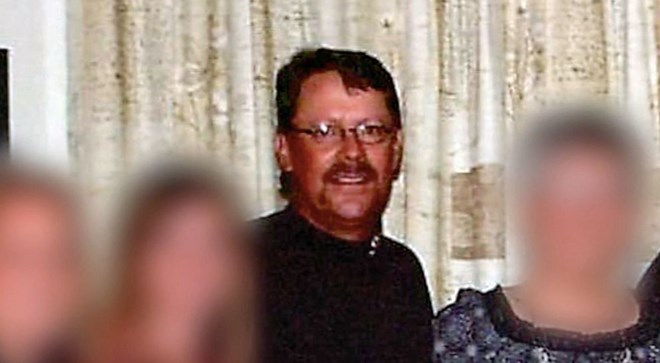
Patrick Stein is pictured with family members in an undated family photo. Stein Family
He “seemed like a nice guy,” someone who could “carry on an intelligent conversation” about farming or economics, but when the conversation turned to Muslims in the area, “He just went berserk … almost Satanic,” Day said.
ISIS had been launching attacks around the world and inspiring Americans to conduct their own attacks at home. The U.S. government expressed confidence in vetting refugees who fled ISIS in Syria and came to the United States, but the government also acknowledged shortcomings.
To Stein, every Muslim inside the U.S. homeland posed a clear and present danger.
“They are the threat that we have in this country right now,” Stein was recorded by Day saying.
Over and over again, Stein reduced innocent men, women and children to “cockroaches” that “need to be eradicated” simply for being Muslim.
He dubbed himself “Orkinman,” like the exterminator.
‘He’s dangerous’
Garden City, with a population nearing 30,000, has in recent decades become a refuge for immigrants from around the world. Mexican and Vietnamese restaurants crowd many streets.
In the early 2000s, refugees fleeing al Qaeda-linked groups and civil war in Somalia began moving to Garden City. Many of them found jobs at a Tyson meatpacking plant on the outskirts of town, which has long served as an anchor for the city’s immigrant community because it provides a reliable paycheck and a chance at the American dream.
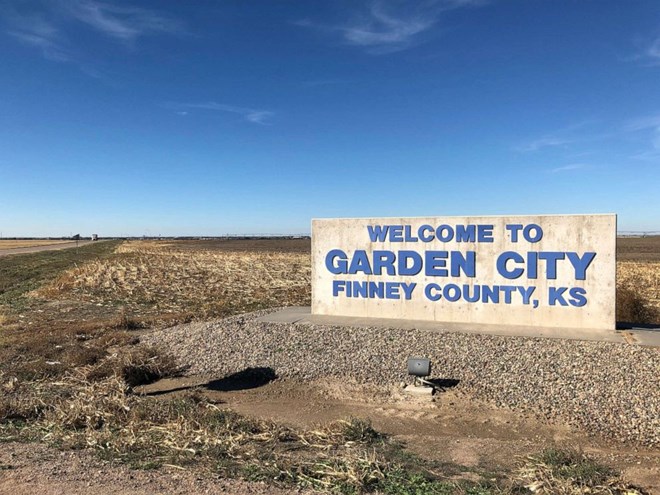
A sign sits on the edge of Garden City, Kan., in October 2020. ABC News
Stein didn’t see it that way.
“What g----mn company in their right mind would hire all these motherf---ing employees … and hand them all these knives,” he said on one of the recordings obtained by ABC News.
Muslims “would cut your f---ing throat if [they] had half a chance,” Stein insisted.
The FBI hadn’t heard of Stein or the KSF until Day warned Kuhn and Smith. “You need to watch this guy. He’s dangerous,” Day remembered telling them.
Based on Day’s initial reports and recordings, the FBI also became concerned about two other KSF members, Curtis Allen and Gavin Wright, who worked together at Wright’s mobile home dealership outside of town.
“My direction to Dan from the beginning was, ‘Don’t be the person to start anything. … Don’t be the idea planter. Just go along with what other people are saying,’” Kuhn said.

Gavin Wright, Patrick Stein and Curtis Allen are pictured in October 2016 booking photos released by the Sedgwick County Sheriff's Office. Sedgwick County Sheriff
The group held militia events and nightly conference calls. They traded wild conspiracy theories, raged over President Barack Obama’s willingness to bring refugees to the United States and used vile rhetoric to ridicule Somalis living in southeast Kansas.
Day often put the calls on speakerphone to record them for the FBI.
“We knew that we had some guys that really did not like the Muslim community,” but even after tracking them for nearly four months, the FBI “didn’t have a clear concept” that they were willing to take violent action, Smith said.
Then something big happened.
‘Organization mode’
On June 12, 2016, 29-year-old Omar Mateen, who was born in New York to Afghan immigrants, opened fire inside the Pulse Nightclub in Orlando, Florida. Swearing allegiance to ISIS, he killed 49 people and wounded scores more.
The attack spurred Stein to take action. Two days later, on a scorching hot day, Stein directed several KSF members to meet him in the middle of a field three hours outside Garden City. He said he wanted others to join him.
“I went into organization mode,” Day recorded Stein saying during one conversation. “I’m done waiting.”
The field meeting was the first time the FBI had Day wear a hidden recording device -- a “big step” beyond just recording phone conversations like he’d been doing for months, Kuhn acknowledged.
“It wasn’t like in the movies, with a van full of FBI agents 20 feet away [ready] to come in and rescue me” if something goes wrong, Day said. “I’m 60 miles away from everything. I’m on my own.”
The FBI had concluded the field was so remote that, as Smith explained it, any “assets” or unfamiliar vehicles “likely would have been compromised.” So Day “was alone,” with “no backup,” said Mattivi, who oversaw the case.
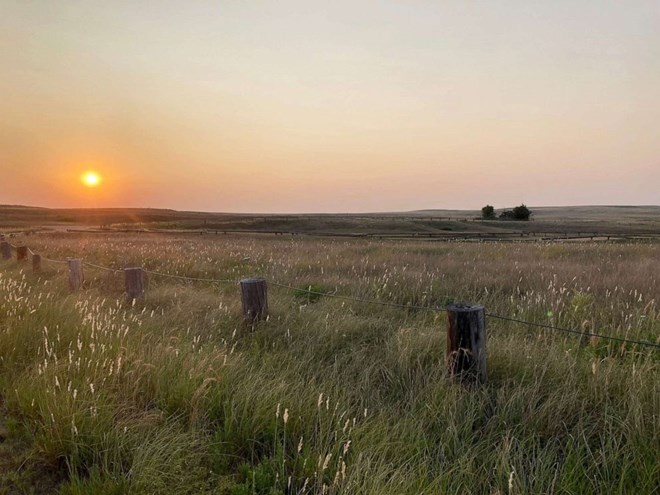
A field in southwest Kansas where former FBI informant Dan Day brought Patrick Stein in 2016. ABC News
Day had no doubt Stein or one of the others would kill him if they found out he was working for the FBI they might even bury him in the field right there, he said.
“The f---ing cockroaches in this country have got to go. Period,” Stein told the other KSF members, as Day recorded. “They’re bringing them in by the f---ing planeload every goddamn day. That g----mn [racial slur] in the White House is making sure of it.”
The meeting ended for Day when, about 20 minutes into Stein’s big pitch, Day fainted from heat exhaustion.
“You can’t make this stuff up,” Kuhn chuckled. “Craziness happens.”
After regaining consciousness, Dan immediately checked for the FBI’s recording device, concerned someone might have found it, he said.
It was still there, but it was “a very close call,” Day said. He was treated at a local hospital and released within hours.
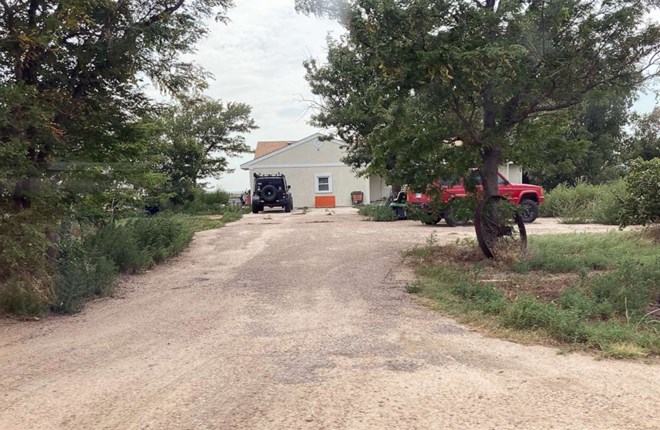
A home outside Garden City, Kan., where five years earlier Patrick Stein held a recruitment meeting with other members of the Kansas Security Force militia, August 2021. ABC News
‘Killing people’
Stein then convened two more recruitment meetings at a militia member’s home. Allen was apparently already onboard with the plan.
“It’s probably killing people and going to prison for life,” Day recorded Allen telling the KSF members gathered there in early July 2016.
In his interview with ABC News, Smith choked up thinking about when he first heard those recorded words.
“That to me showed a significant level of commitment that was nothing less than shocking,” Smith said, his voice cracking.
At the time, some of the other KSF members pushed back on what Stein and Allen were proposing.
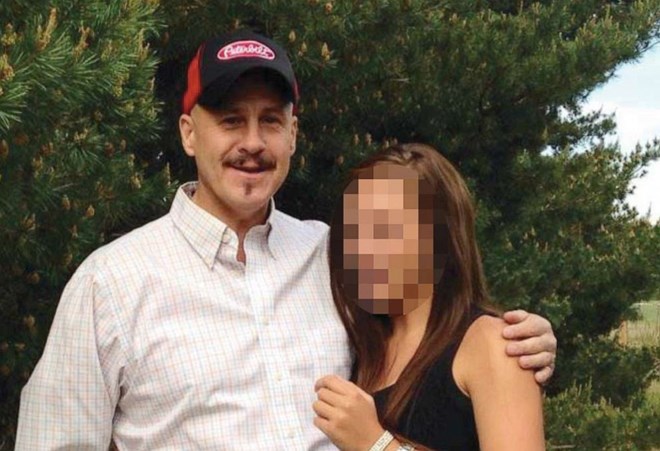
Curtis Allen with his daughter in an undated photo. Federal Public Defender's Office
“I’m not just gonna go up and start … gunning down Muslims,” one woman was heard saying on Day's recording from that day.
As a militia, KSF was meant to be “on the defensive,” she insisted.
“You want them to strike first?” Day asked.
“I’m not doing anything to risk my kids going in foster care,” the woman responded. “I am 100 percent with a defensive position.”
Ultimately, Allen, Wright and Day were the only ones who said they were willing to take up arms with Stein.
“We need to … start planning it,” Allen declared after the last recruitment meeting. “[But] I don’t know where we can meet to where we can openly talk.”
“Well,” Wright suggested, “I got my office,” referring to a trailer on the lot of his business, G&G Home Center. “We could meet in there any time.”
No one Stein tried to recruit called authorities.
‘Good men’ doing ‘bad things’
Stein gave his new foursome a name: “The Crusaders” -- like the medieval Crusades, when “Muslims almost wiped out the Christians,” but this would be “Crusades 2.0,” Stein said.
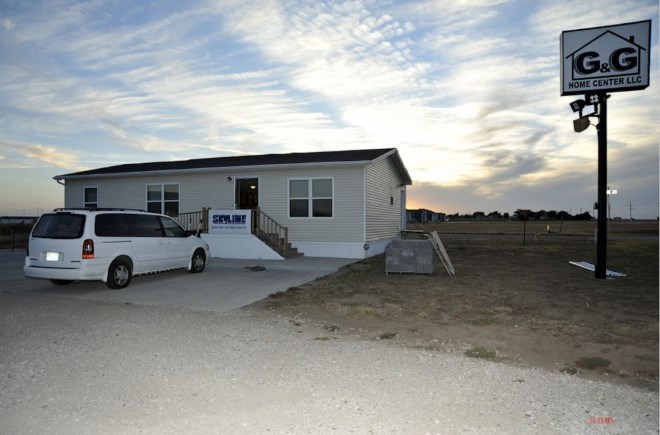
The trailer at G&G Mobile Home Center where Patrick Stein, Curtis Allen, Gavin Wright and Dan Day often met in 2016 is pictured in a Justice Department image dated October 2016. Justice Department
The “Crusaders” were convinced that Wright’s G&G business, more than an hour away from Garden City, was beyond the reach of the FBI.
In some ways, they were right. It was another location too remote for the FBI to deploy surveillance teams, so Day’s survival was once again in his own hands when the group started meeting there in August 2016.
Each meeting lasted several hours, sometimes as long as a full shift of work.
“These guys would talk about everything under the sun,” recalled Mattivi, who retired last year. “They’d talk about politics. They’d talk about football. … But they also talked about the plot.”
“It’s gonna take a lot of good men to do a lot of bad things to turn s--- around,” Stein said at one of those early meetings. “[But] what are those bad things that we need to do?”
“Once we get a target, then critique it, just go from there,” Day told the group.
In meeting after meeting, Day’s recordings showed, the men struggled to pick a target, meandering through an array of possibilities: An apartment complex. A mosque. A Somali store. A bus transporting refugees. Maybe even Christian churches that are helping refugees.
They similarly waffled over how to conduct their attack, floating all sorts of ideas: Pumping poisonous gas into a building. Breaking in doors and opening fire. Setting an apartment complex ablaze. Kidnapping and raping women.
“The more we talk, the more I’m just about ready to f---ing do anything, honestly,” Stein said during one meeting at G&G.
The FBI then placed a tracking device on Stein’s pickup truck, just in case.

The "African Shop" in Garden City, Kansas, October 2020. ABC News
A manifesto like the Unabomber’s
While the “Crusaders” continued to brainstorm big ideas for an attack, Allen suggested they release a treatise with whatever they decide to do.
“I’m talking about putting out that -- what do we call that thing?” Allen asked.
A “manifest!” one of them confidently declared.
No, it’s a “manifesto,” another corrected.
“Like Brzezinski put out,” Allen blurted, confusing even himself. “It’s not Brzezinski. What’s the other’s name?”
“The Unabomber?” Day asked, referring to Ted Kaczynski, whose decades-long bombing campaign ended in 1995 with a rambling essay in the Washington Post.
“Kaczynski!” Allen affirmed. “We’re going to try to trigger the other like-minded people across the nation to stand up and start doing the same thing we’re doing.”
The exchange would have been comical if they weren’t discussing a deadly plot.
By mid-August 2016, with only a few months to go before the presidential election, the group was on the verge of picking a target for their attack. They were also experimenting with bomb-making materials, and about to meet one of Day’s old “connections” – an undercover FBI agent posing as a dangerous criminal who could help them.
What happened next is laid out in the second part of this exclusive series from ABC News: “‘We were infiltrated, mom’: Secret recordings track demise of domestic terror attack.”
How Stein, Wright and Allen become so filled with hate, before ever encountering Day, is detailed in the third and final installment of this series: “Becoming a domestic terrorist.”
ABC News' Cho Park, Eamon McNiff, Jennifer Joseph and Chris Donovan contributed to this report.